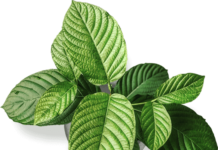(Image source: Lebrac / CC BY-SA (https://creativecommons.org/licenses/by-sa/3.0)” href=”https://commons.wikimedia.org/wiki/File:Igelstachelbart,_Hericium_erinaceus.jpg)
Admit it: sometimes we don’t realize how important our brains are.
Because the brain works automatically and never seems to shut down even while we sleep, learning how to care for it isn’t something we would tick off in our to-do list.
However, the brain, being one of the most powerful machines to ever exist, shouldn’t be taken for granted and its overall health and condition are two things we shouldn’t take lightly.
As our bodies grow older, so does our brain. What once was a sharp thinking tool becomes forgetful and slow to process. Short term memory processes are mainly affected; you open the fridge and forget what to take out. The mental fog becomes more common as we age and though there is nothing we can do about it, we can try to minimize its effects.
This is where nootropics come in handy.
Nootropics are medications that can help improve cognitive function and processes. It mainly affects memory, creativity, executive functions, and motivation.
Is Lion’s Mane Good For The Brain?
There are many foods and nutrients out there that claim to be “brain food”, or food that contains nutrients that specifically affect our brains. Out of these, the lion’s mane is worth mentioning.
Lion’s mane is a wild mushroom that grows in some parts of Asia. By its name itself, the lion’s mane closely resembles the wild, lustrous fur of a lion. It is said to be a cognitive enhancer, and these are its health benefits:
Lion’s Mane Minimises the Effects of Cognitive Decline
Middle-aged to older people would tell you things like “My brain isn’t functioning the way it used to before.” in an apologetic tone. This is an inevitable sign of aging.
The brain started forming itself way before we were born. It is one of the first organs a fetus would develop along with the heart and spinal cord. Beginning at birth up to around the age of five, our brains operate at such high speeds that it makes thousands of connections every minute. These connections are crucial since it forms new information, memories, and such.
When we reach adulthood, the process of forming connections sort of slows down gradually until we reach old age and there are only certain things we can recall. Unfortunately, many people totally lose this function and develop either dementia or Alzheimer’s disease, two of the most devastating illnesses that can affect your brain. Lion’s mane contains two compounds called Hericenones and Erinacines. Both are helpful in nerve cell growth.
Lion’s Mane Helps with Anxiety and Depression
When taking Lion’s Mane, there has been an improved functioning of the hippocampus which can help reduce anxious and depressive behaviors.
Both anxiety and depression are two of the most common mental illnesses that plague at least 260 million people currently. Both illnesses are never really talked about much and can affect one’s way of living and social interaction. At its worst, it can cause someone to be suicidal.
Lion’s Mane Reduces Inflammation and Oxidative Stress
Our bodies naturally flush out free radicals, but when there is too much of it the tendency to develop certain illnesses increases. So does cognitive decline.
Lion’s Mane, according to a study, is the fourth-highest source of antioxidant activity when ingested regularly. In healthy individuals, this could be a helpful nutrient in helping ward off autoimmune diseases and even certain types of cancers.
Lion’s Mane is an Immune System Booster
Lion’s Mane may help boost the immune system by increasing the activity in the intestines.
With so many types of viruses going around, it is important to help our immune system. Getting sick nowadays is not only a hassle, but also costs a lot of money.
Lion’s mane is a supplement that you could learn more about and see if it fits your daily nutrient intake. Their benefits all sound amazing and helpful in this day and age but do note that studies regarding the effects of this wild mushroom were done on animals.
Lion’s Mane: a Superfood
Make sure to get your own potent lion’s mane mushroom powder. Enjoy this wild mushroom in tablet, capsule, liquid and powder form. If you are lucky enough to get the plant itself, you may cook it, eat it raw, dried, or even steeped in tea.


























